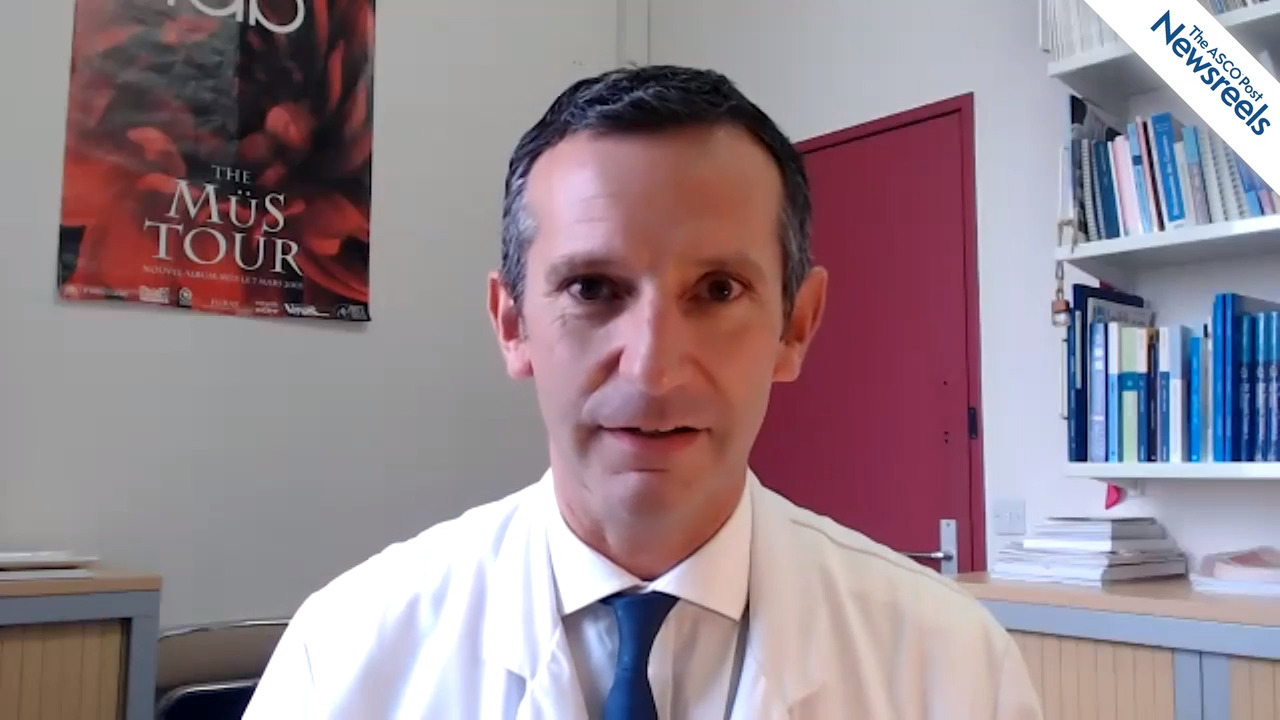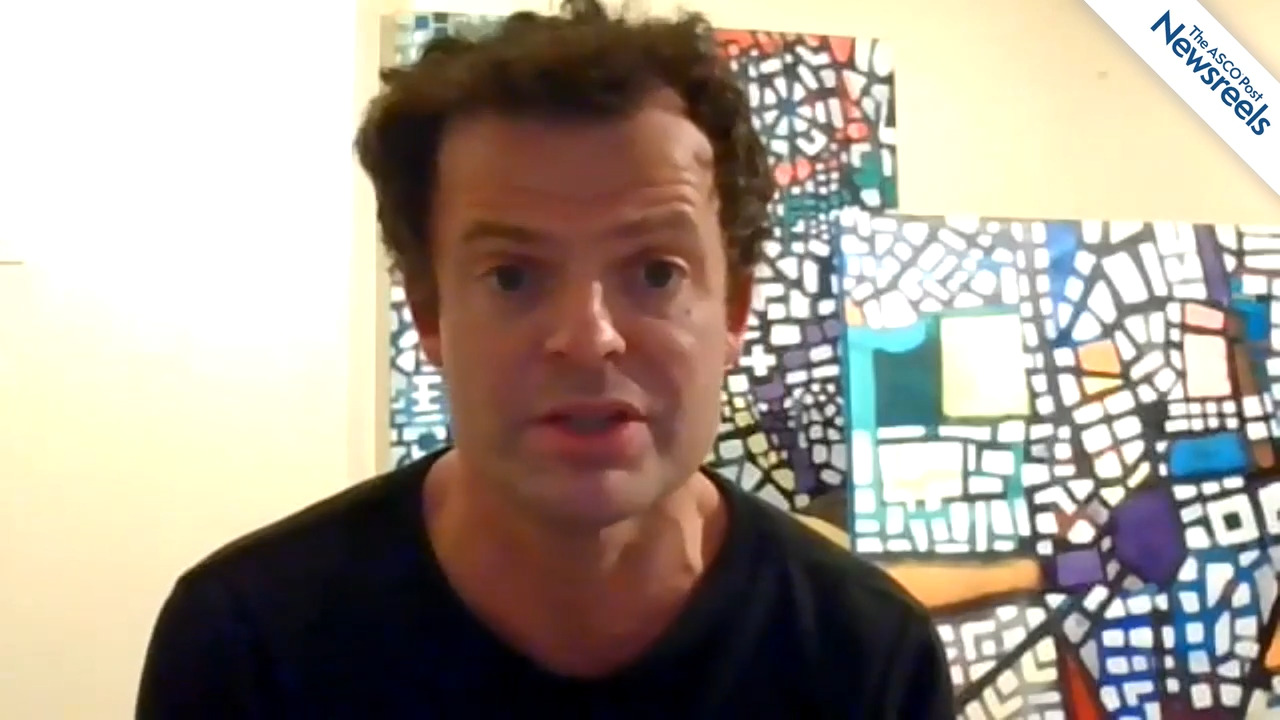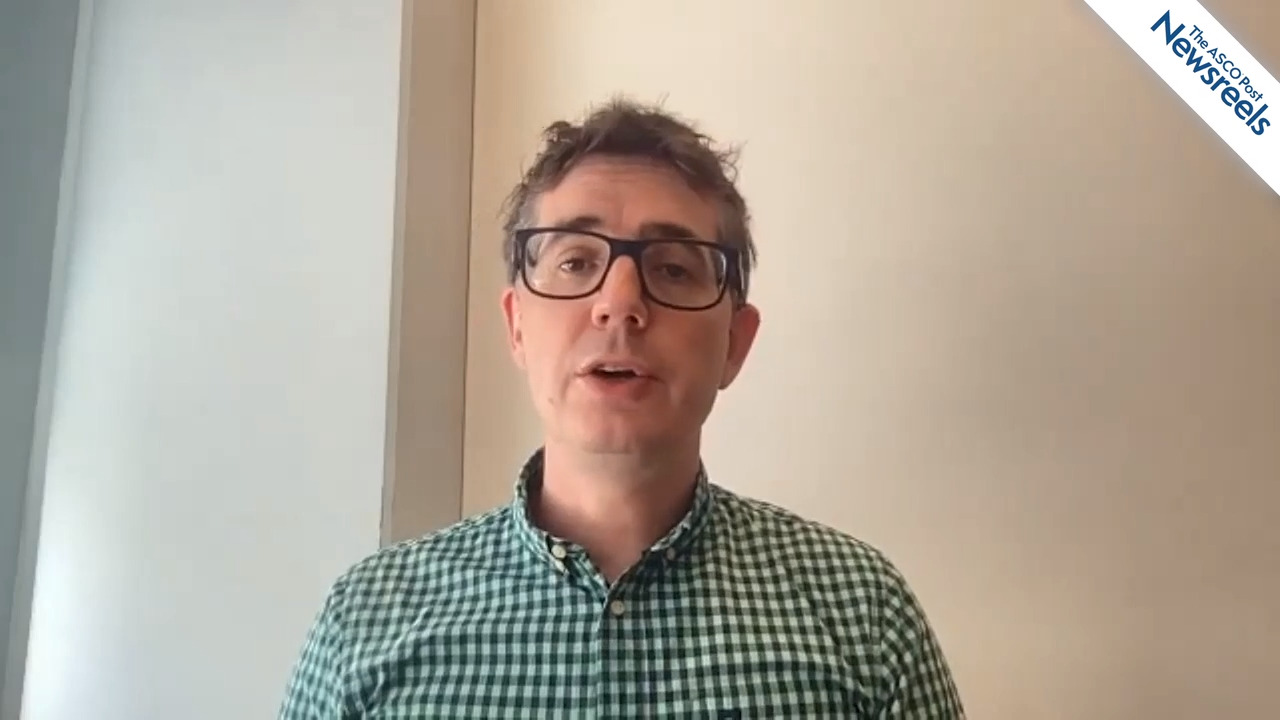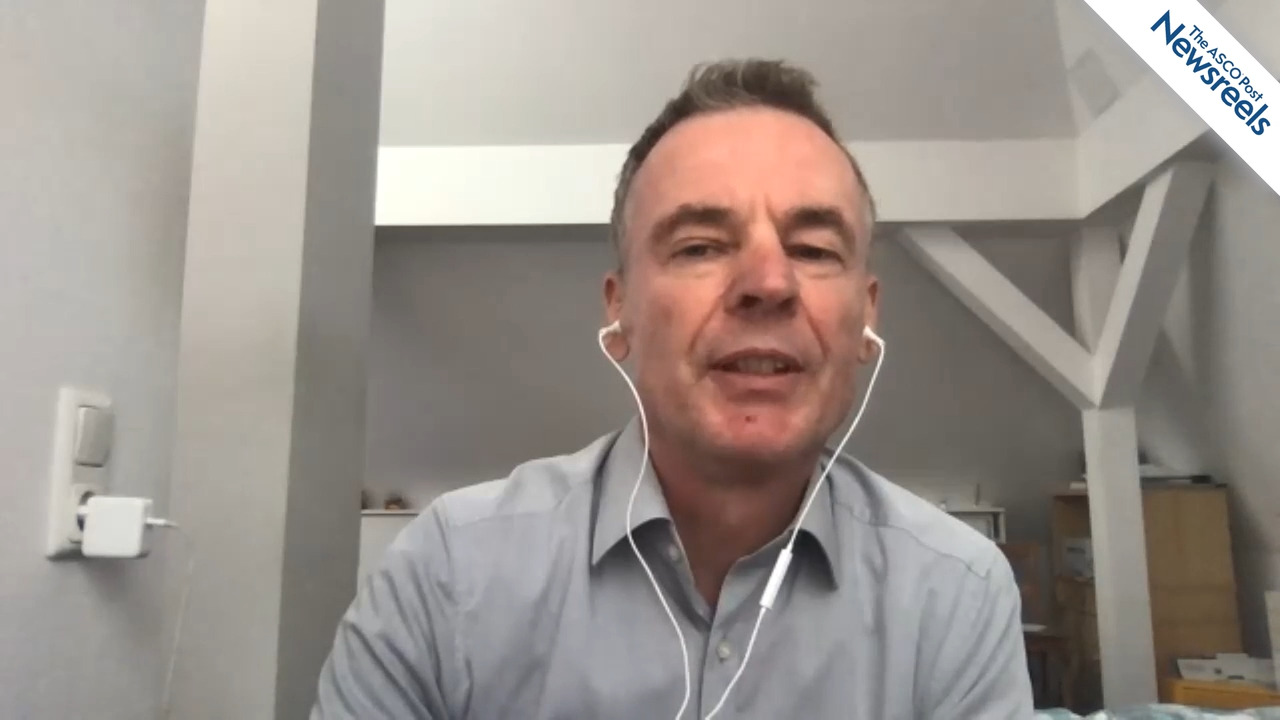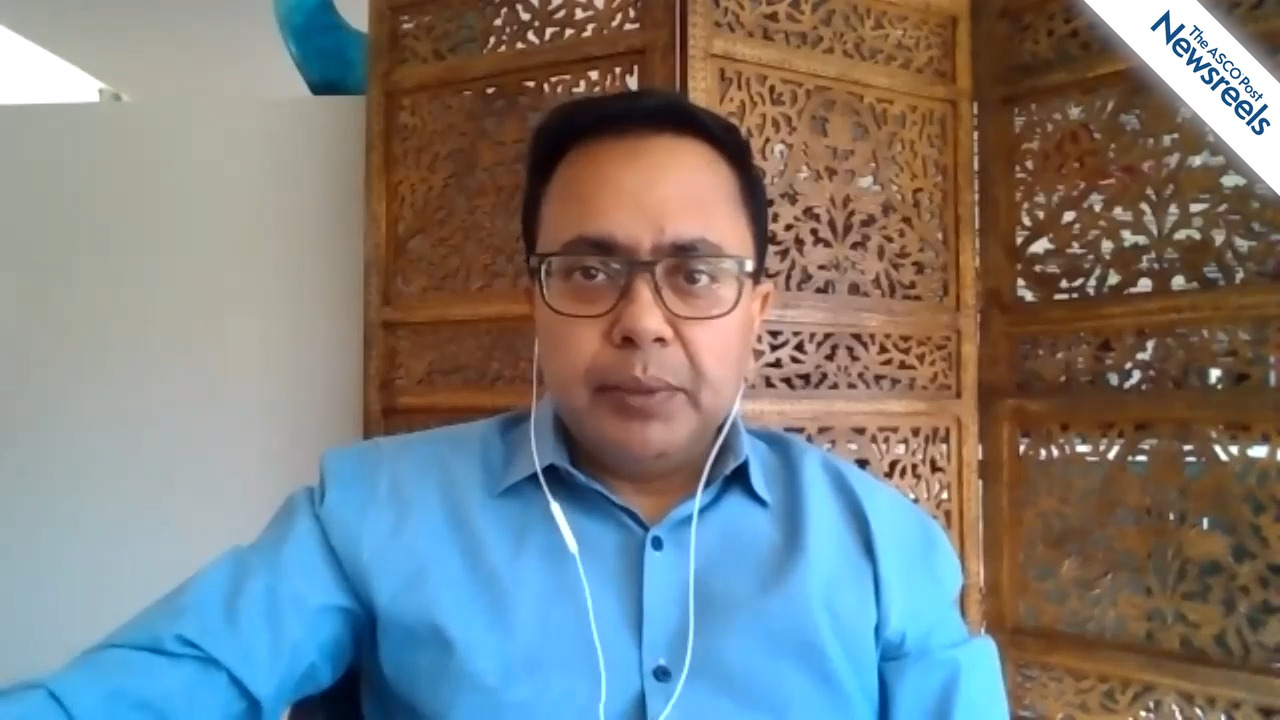Joseph M. Unger, PhD, on the Impact of NCI-Sponsored Treatment Trials
ESMO Congress 2021
Joseph M. Unger, PhD, of Fred Hutchinson Cancer Research Center, discusses findings from his study of the National Cancer Institute’s Clinical Trials Network, which has conducted publicly funded cancer research for more than 50 years. The substantial gains in life years for patients with cancer, he says, supports the critical role of government-sponsored cancer research (Abstract 1503O).
The ASCO Post Staff
Benjamin Besse, MD, PhD, of the Institut Gustave Roussy, discusses final phase III findings from the Atalante-1 trial, which explored the question of whether the OSE2101 vaccine is more beneficial than standard treatment for patients with HLA-A2–positive non–small cell lung cancer after immune checkpoint inhibitors are no longer effective (Abstract LBA47).
The ASCO Post Staff
Thomas Powles, MD, PhD, of Queen Mary University of London, discusses phase II results from the NORSE study, which showed that the kinase inhibitor erdafitinib plus the monoclonal antibody cetrelimab produced meaningful responses in cisplatin-ineligible patients with first-line metastatic or locally advanced urothelial carcinoma and fibroblast growth factor receptor (FGFR) alterations (Abstract LBA27).
The ASCO Post Staff
Robin Cornelissen, MD, PhD, of Erasmus University in Rotterdam, discusses phase II findings from the ZENITH20-4 study, which explored the question of whether poziotinib could benefit patients whose newly diagnosed non–small cell lung cancer harbors EGFR and HER2 exon 20 mutations. Potentially, this novel tyrosine kinase inhibitor may fill an unmet medical need (Abstract LBA46).
The ASCO Post Staff
Dieter Hörsch, MD, of Germany’s Central Clinic in Bad Berka, discusses phase III results from the SPINET trial, the largest prospective study to date of the somatostatin analog lanreotide autogel. The study suggests that this agent may prove to be an appropriate treatment option for patients with somatostatin receptor–positive bronchopulmonary neuroendocrine tumors, especially typical carcinoids (Abstract 1096O).
The ASCO Post Staff
Neeraj Agarwal, MD, of Hunstman Cancer Institute at the University of Utah, discusses efficacy and safety results from the COSMIC-021 study, in which cabozantinib plus atezolizumab demonstrated clinically meaningful activity and a manageable safety profile in patients with metastatic castration-resistant prostate cancer. The findings support a phase III study of these agents vs a second line of novel hormonal therapy (Abstract LBA24).
